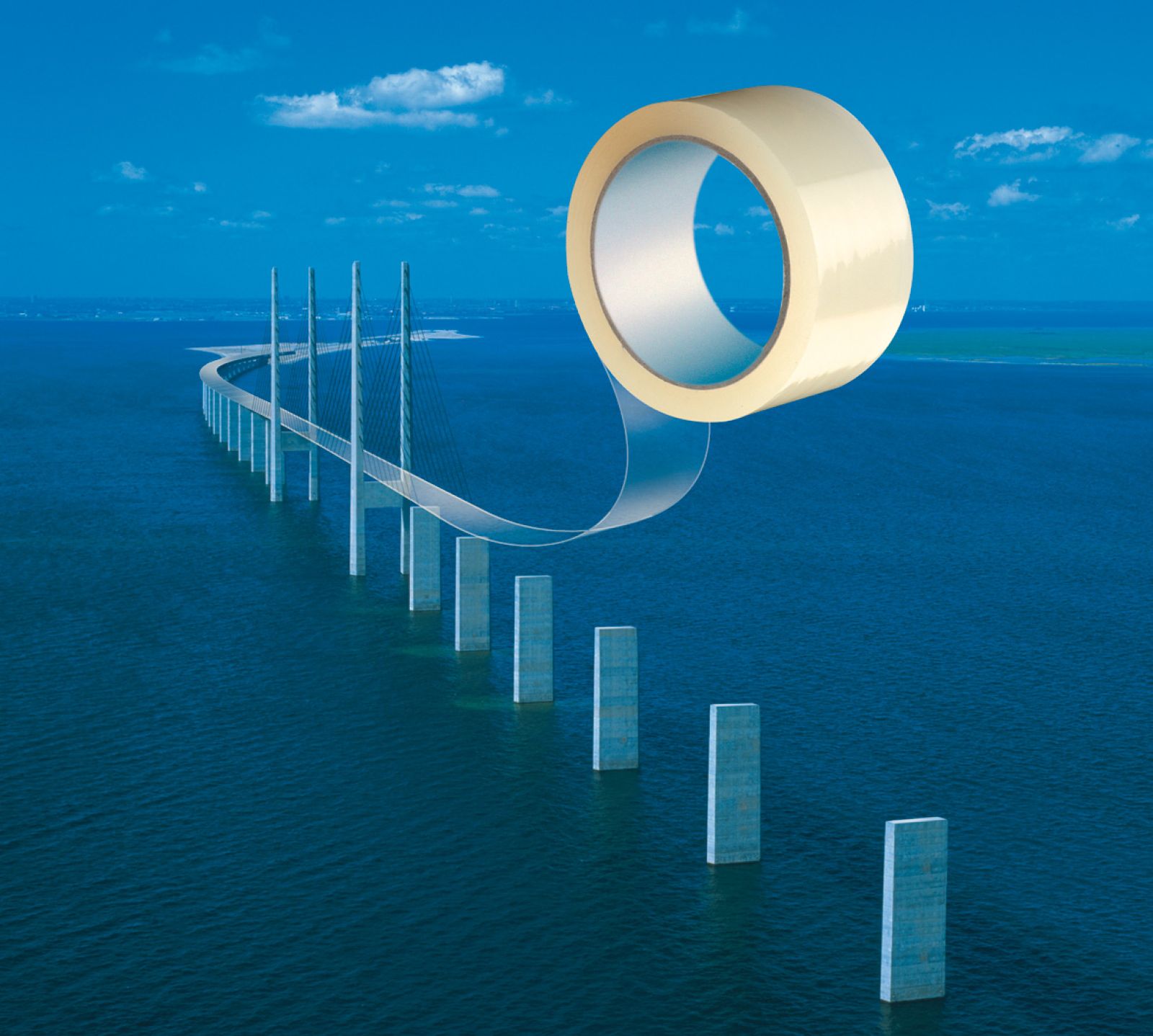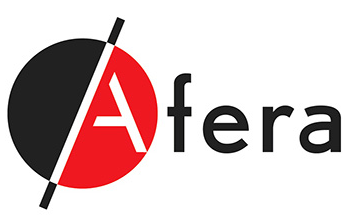
COI debate Afera 2014
REPORTS PREVIOUS CAPTAINS OF INDUSTRY DEBATES>

Afera Annual Conference participants were treated to a lively panel debate during the Working Programme on Friday, 3 October 2014. This was Afera's third 'Captains of Industry' discussion event, expertly moderated by independent marketing strategist Bert van Loon, who got some of the top managers in today's European adhesive tape industry to open up about their personal and company views on topics such as customer intimacy, Asian competition, flexibility, consolidation, raw materials, and young talent.
Captains of Industry Carles Andreu (tesa Western Europe BV, NL), Harald Braun (Novamelt, Germany), Aric Getty (3M IATD, Western Europe, Germany), Mike Punter (Parafix Tapes & Conversions Ltd., UK), and Luigi Rovellini (Guzzetti, Italy) participated in a lively discussion on today's hot issues, addressing topics and answering questions and which had been submitted to Afera's management team by Afera Members.
"Challenge" was the buzz word
Although it was mentioned a few times during the debate that Conference presentations had revealed promising economic figures for Europe, the most-used word during the debate was "challenge". European companies are faced with a myriad of challenges: Finding new, better, more...opportunities for developing specialised tape solutions. Developing better tape solutions than the competition. Becoming or staying flexible structurally and financially. Keeping close to customers. Working with channel partners. Dealing with the limited availability of raw materials. Attracting new talent. The dialogue was markedly different from that of the last two debates held in 2013 and 2009, in which "crisis" and "sustainable" were overused.
Working together with customers and channel partners
What was most interesting about the debate is we learned that every company represented on the panel has a primary strategic focus on building and maintaining customer intimacy. This also includes working together with channel partners all over the adhesive tape industry to develop solutions that add value to their customers' products. Mr. Van Loon referred to this as getting closer to "the pie", the market. Mr. Andreu called it a "great" and much "more complex process" than tesa's former product development/sales process: "Today's process involves more hunting, spec'ing and integrating the entire value chain...."
Along the same lines, Mr. Getty explained that "as we see times change—as we see information become more and more available across the industry—just having availability of a product is not good enough." Instead of "product leadership", the future "is going to be a more collaborative effort between customers, value-added partners, and products and technology" (Getty).
Winning in markets is no longer just about the product, and it is not just about the price
Mr. Punter discussed finding the "pain point" once you get to know your customers inside and out. If you know what makes them tick, and are perhaps lucky enough to have access to a large company's warranty book and analyse what drives those costs, you will probably be able to find solutions which save them pain, whether that is time, money or embarrassment (in the case of corrosion in automobiles). As Mr. Punter concluded, "you must get all over that customer like a rash."
Mr. Rovellini referred to the customer as "the principle partner of innovation", saying "that there is no way but to listen to him carefully, as he is the one in command in the [solution development] process." The collaborative process of developing innovative solutions also becomes a sales and marketing process of sorts, especially if your clients "ask your competitors as well to join them in exploring new possibilities" (Rovellini). There is only one way to handle this: to come to the table with your best idea—your best final solution—and let the client choose. As many on the panel admitted, this process is not always easy.
A few steps further in establishing customer intimacy is actually leading your customers and staying ahead of them in this technical development space. Mr. Getty touched on having "some foresight and some guts to say, 'I think we can design the five-year model,'" which Mr. Punter remarked was starting to sound a bit long in terms of current technology generations.
The threat of Asia? "We still have a future in Europe, for sure"
On the subject of Asia, the Captains seemed impressed with growth figures in the region, which Mr. Andreu said are centred in China, but they did not seem fazed by Asian competition. According to Mr. Andreu, the "good mentality" of focussing more on added-value solutions in the European industry may serve "as a low entry barrier to Asian competitors who are more price driven." As Europe is less focussed on commodity tape manufacturing—except for Western European commodity producers and specifically Mr. Andreu's "friends from Italy"—he and Mr. Rovellini agreed that the Asian boom "will not affect our business that much" (Andreu).
Mr. Rovellini relates that "Asians are not the leaders of innovation in our industry," and that "their costs will increase as soon as social rights are addressed in their region." He emphasised that the Asian adhesive tape industry does not have the "history, structure and tradition that we have in Europe in the development of new products," concluding that Europeans have to be confident that they still have a future here.
The importance of being flexible. Consolidation. Cash is king.
What goes along with close collaboration with customers and channel partners is a business' ability to be flexible both structurally and financially. Mr. Punter spoke of the importance of being able to expand and contract according to the state of the economy and the market. This allows Parafix, which he considers a medium-sized company, "to identify the trends and chase the gazelles." With no set business plan other than to chase strategic markets, "ones that we believe we can offer true value," Parafix continues to be successful.
But becoming and staying flexible takes focus and rapid decision-making. Mr. Punter also works on the principle "cash is king", which applies to all companies regardless of size. He stressed that you have to work within your resources if you are going to take risks such as expanding and moving production internationally with a customer. Having an honest, close relationship with your banks has worked well for Parafix.
"External customers expect to have a local, flexible, logistically efficient supply," explained Mr. Braun. Over the last ten years, he has seen major clients move production to the US, China and Mexico. If you want to stay close to your customer, you have to take the decision to follow him. Mr. Braun feels that "this is a huge issue for family-owned companies" and companies which do not have a ready supply of financial and human resources such as large multinationals like 3M do. Most Captains agreed that keeping production solely in Europe will mean trouble for every business eventually. For this reason, Mr. Braun said that consolidation within the adhesive tape industry is inevitable.
Financial engineering will remain a challenge, because banks themselves are not as flexible about backing business expansion as they used to be. "You have to bring everything with you," Mr. Braun explained. And this applies even to companies that are well-established, with good track records—never mind if you are just starting out in the industry. "Today, I think for young, innovative entrepreneurs, setting up an enterprise is much more difficult than back in my time" (Braun).
Raw materials
All the Captains seemed to agree that raw materials availability is a challenge and that REACH just makes it that much harder. Mr. Braun said that "as Europeans our biggest threat is raw materials availability in the future." Available naphtha volumes from the US are decreasing, so feedstock will have to be bought primarily out of Asia. Europe only has one rubber production site left, so it will have to buy from a monopoly in the US, Japan, Thailand and China. Europe still has a small amount of tackifier production. Mr. Braun concludes that you have options if you produce water-based adhesives. Otherwise "we will have to do something with Asia in order to overcome the situation." So if you are not big enough or you have no foreign production, business will become increasing difficult for you.
Cultivating young talent
A continuing issue in the adhesive tape industry is seeking out and investing in technical talent, which is vital to all businesses in order to build and maintain their competitive advantage. Mr. Getty says, for example, that "hiring the best and brightest development personnel is really key to keeping ahead of the customers" in the solution development process.
In Germany, Mr. Braun explained that only 10-20% of university students "study chemistry, mechanics or electronics" and that all the chemists he interacts with through his company are from countries such as China, the Czech Republic, etc. There is a lot of competition for young German technical personnel, especially in the area where he is located (close to the Swiss border), and they are attracted by the prospect of pursuing an international career through a company that operates abroad.
Although the UK has suffered a lack of technical university students, Mr. Punter says that young people are not going to university, instead opting for "a more traditional vocational education". His company also participates in a successful private- and government-funded knowledge transfer programme to stimulate the development of young technical professionals.
Mr. Andreu discussed cultivating young talent as "one of the main challenges we have at tesa." How do you, as a German multinational company, train technical corporate decision-makers to represent them all over the world? By working with HR to stay close to the strategy when hiring, and making sure that rising stars spend enough time in Hamburg to adopt the culture and values of the company before applying to work in Asia of the Americas.
To read the complete Dubrovnik Captains of Industry Panel Debate transcript, click here.
REPORTS PREVIOUS AFERA CAPTAINS OF INDUSTRY DEBATES
To read the Panel Debate held in Taormina in 2013 click here
To read the Panel Debate held in Cracow in 2009 click here

